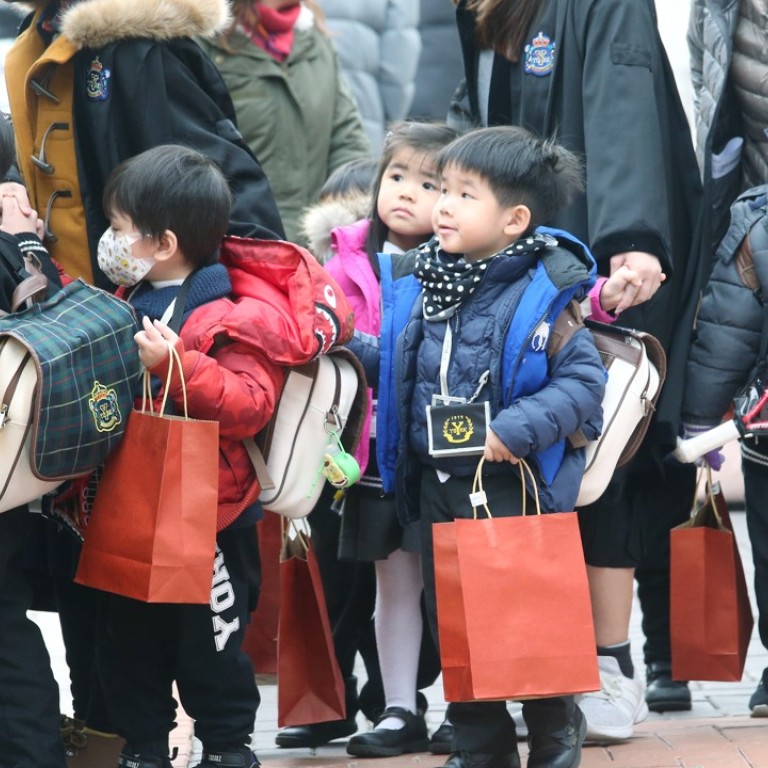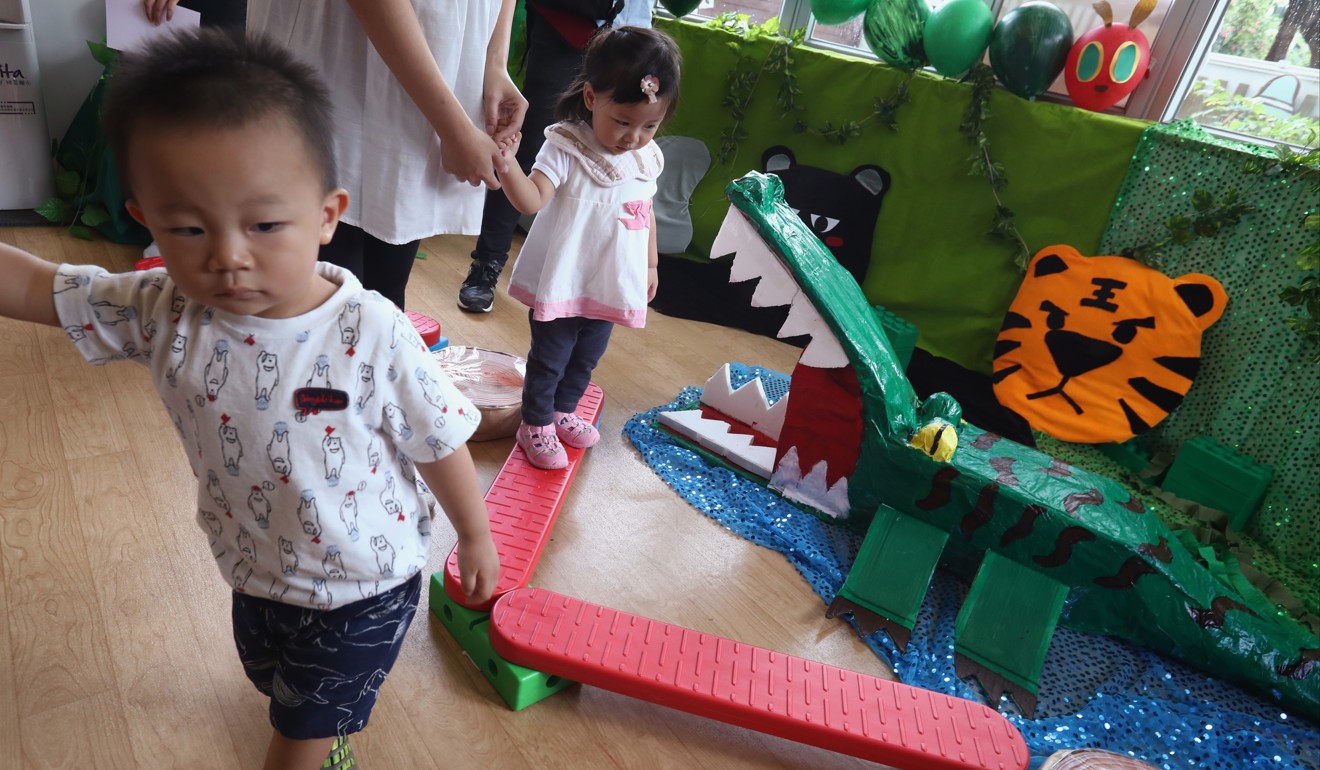
Full-day kindergartens do not make kids smarter than those in half-day schools, Hong Kong study finds
HKU study finds those spending just half a day in kindergarten are at no disadvantage
Children who attend full-day kindergartens are not smarter or more well-adjusted than those who are in half-day programmes, but parents still believe it is better to spend a longer time in school, a University of Hong Kong study has found.
Researchers randomly selected 346 children, both boys and girls attending full- or half-day sessions at 15 kindergartens across the city and assessed them from 2015 to last year.
They found no significant difference in terms of the children’s language, cognitive, physical, social and emotional development.

But in the team’s interviews with about 300 parents, about seven in 10 wanted the option of whole-day kindergarten programmes for their three- to five-year-olds. About eight in 10 said a longer school day would help with social and emotional development while close to nine in 10 said their children would have better “self-care skills”.
Job uncertainty gnaws at Hong Kong’s contract teachers in public schools and causes low morale, union survey finds
Still, the researchers suggested education authorities establish full-day sessions at most of the city’s kindergartens, as this would help single parent or dual-income households with their childcare needs. “Hong Kong needs more family-based childcare. But some families with both parents working don’t have carers for their kids. It would be much better to have kids stay in school where teachers can guide them,” said research team leader Dr Li Hui, an associate professor of education.
The team also canvassed 130 or so early childhood educators, who felt that children from certain types of families – including lower-income ones and those with working parents – would benefit most from full-day sessions.

Li urged the government to increase its current level of subsidies to kindergartens so more would offer full-day programmes.
The city has 881 kindergartens, according to the latest Education Bureau figures. Over 700 receive subsidies from the government for each pupil enrolled in a half-day programme, with additional grants for those who attend full-day sessions.
Crazy elitism in Hong Kong schools has gone too far
At some kindergartens, such as the 15 with children who were assessed, no extra fees are charged for the half-day sessions.
Li said kindergartens had complained that the additional grant for longer programmes was not enough.
“Running a kindergarten is not an easy job, for example, [teachers in] whole-day schools have to pay more attention. [And with] napping, eating, catering and going to the playground … all these activities need resources and money.”
Justine Lee Hiu-man, 38, who now stays at home to look after her two children, said she quit her job in corporate communications as “there simply aren’t many work opportunities favourable to working mums”.
She said she would consider sending her second child to a full-day kindergarten when her older daughter, now in a half-day programme, goes to primary school.
But there is keen competition for full-day spots.
“My friend said I was late in submitting an application for my four-month-old daughter for a full-time spot in kindergarten,” Lee said.
“There are two popular kindergartens in Tsuen Wan and in order to secure a whole day spot, some parents helped their kids apply soon after they were born.”
